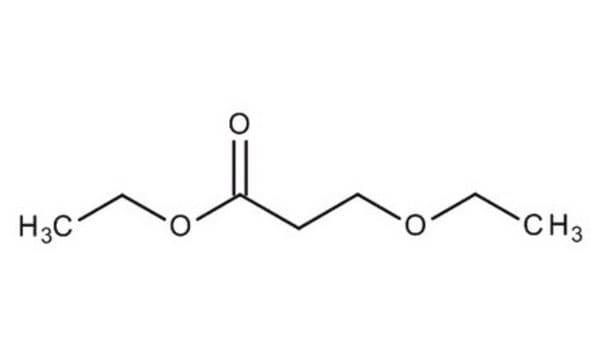484431
Propylene glycol monomethyl ether acetate
ReagentPlus®, ≥99.5%
Synonym(s):
DOWANOL® PMA, 1,2-Propanediol monomethyl ether acetate, 1-Methoxy-2-propyl acetate, MPA, PGMEA, Propylene glycol methyl ether acetate
About This Item
Recommended Products
vapor pressure
3.7 mmHg ( 20 °C)
Quality Level
product line
ReagentPlus®
Assay
≥99.5%
autoignition temp.
669 °F
expl. lim.
13.1 %
refractive index
n20/D 1.402 (lit.)
bp
145-146 °C (lit.)
145-146 °C
solubility
water: soluble 198 g/L at 20 °C
density
0.970 g/mL at 25 °C (lit.)
SMILES string
COCC(C)OC(C)=O
InChI
1S/C6H12O3/c1-5(4-8-3)9-6(2)7/h5H,4H2,1-3H3
InChI key
LLHKCFNBLRBOGN-UHFFFAOYSA-N
Gene Information
human ... AR(367) , IMPDH2(3615) , NR3C1(2908) , PGR(5241)
Looking for similar products? Visit Product Comparison Guide
General description
Application
Legal Information
®Trademark of The Dow Chemical Company
Signal Word
Warning
Hazard Statements
Precautionary Statements
Hazard Classifications
Flam. Liq. 3
Storage Class Code
3 - Flammable liquids
WGK
WGK 2
Flash Point(F)
113.9 °F - closed cup
Flash Point(C)
45.5 °C - closed cup
Choose from one of the most recent versions:
Already Own This Product?
Find documentation for the products that you have recently purchased in the Document Library.
Customers Also Viewed
Our team of scientists has experience in all areas of research including Life Science, Material Science, Chemical Synthesis, Chromatography, Analytical and many others.
Contact Technical Service













